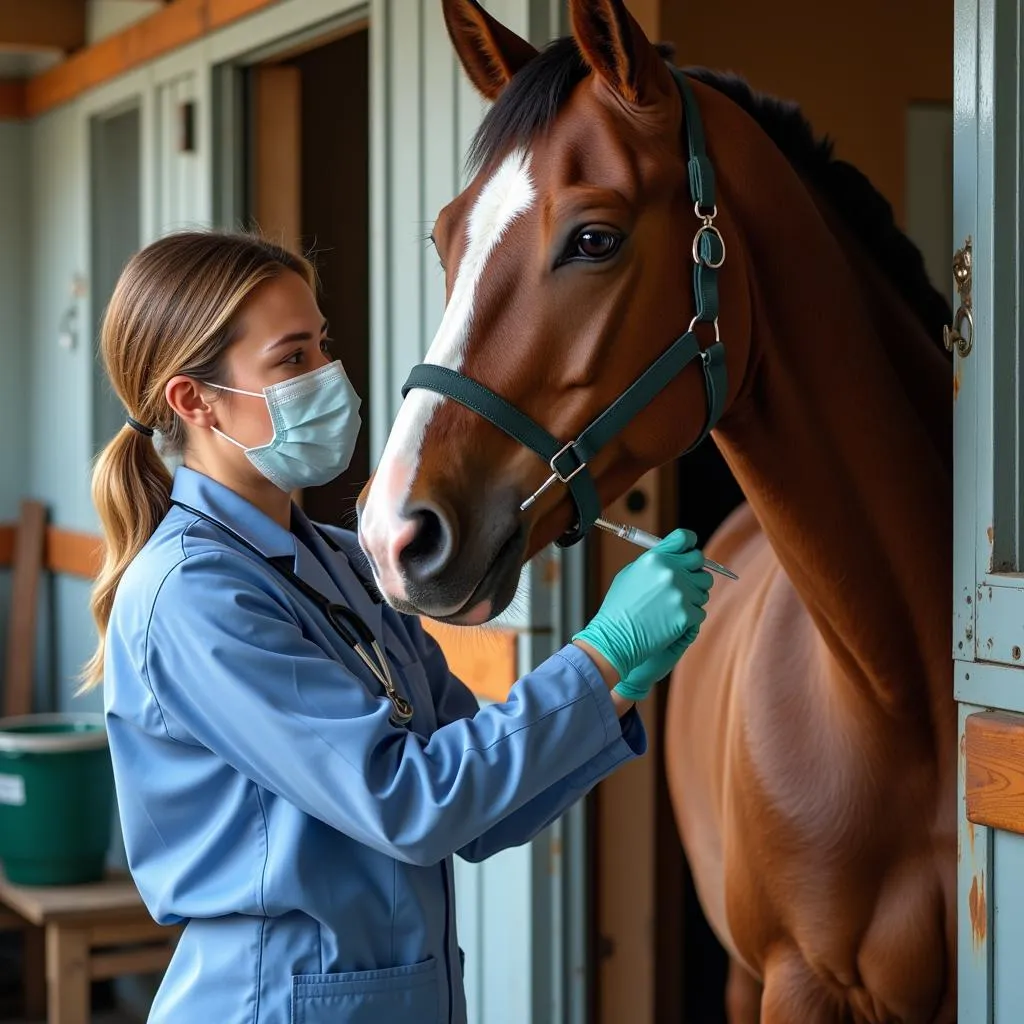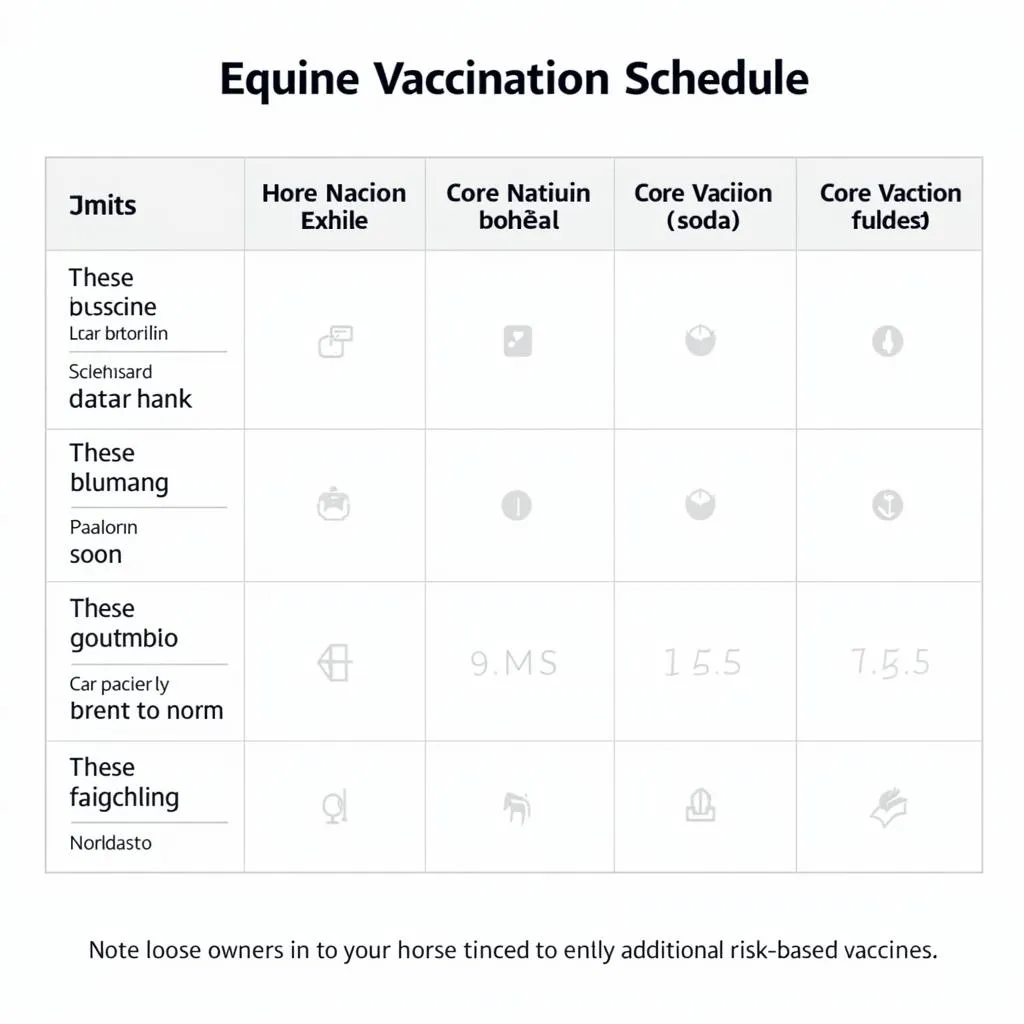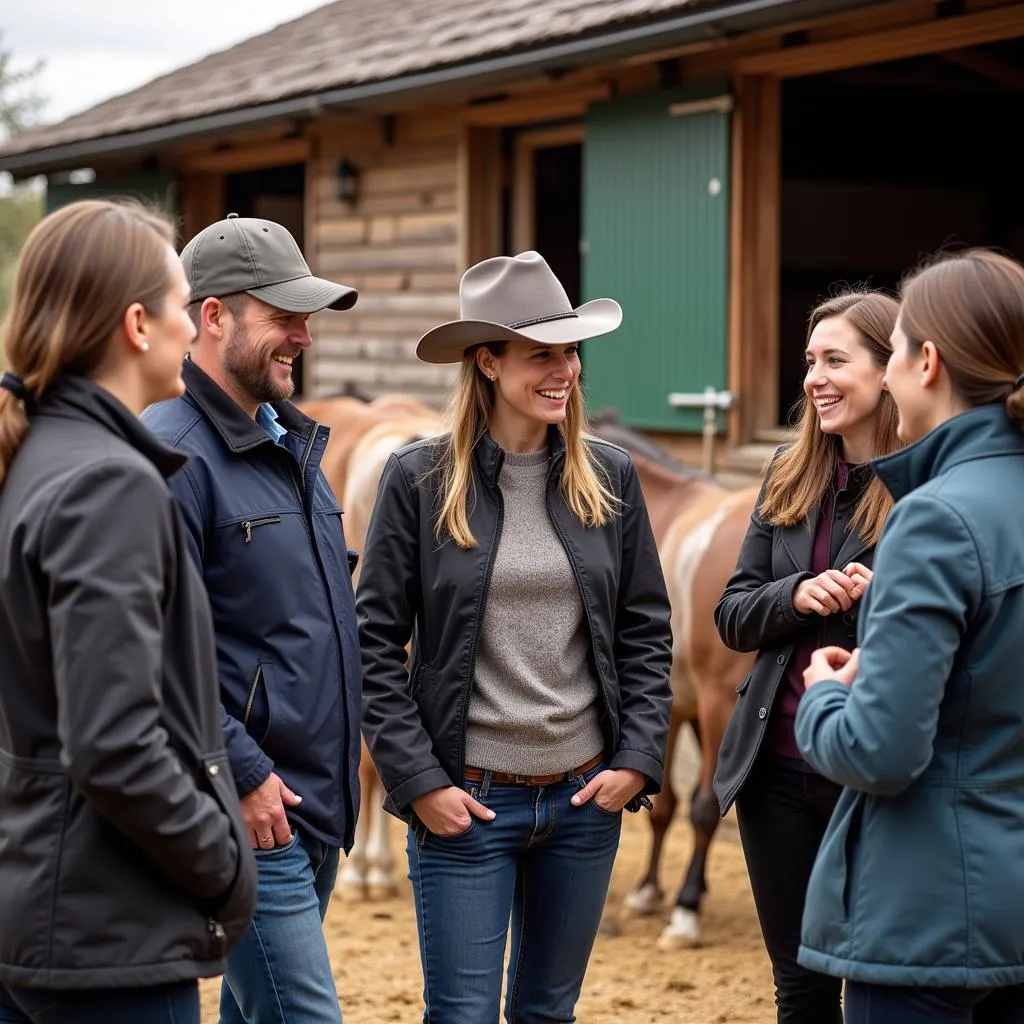Owning a horse is an incredible experience, but it’s no secret that caring for these majestic animals can get pricey. Along with feed, farrier visits, and other necessities, vaccinations are a vital part of responsible horse ownership. The good news is that you don’t have to break the bank to keep your equine friend protected. With a little research and planning, you can find “Horse Vaccines For Less” without compromising on quality.
 Veterinarian administering affordable horse vaccination
Veterinarian administering affordable horse vaccination
Understanding Essential Horse Vaccines
Before we dive into saving strategies, it’s crucial to understand which vaccines are essential for your horse. Core vaccines are considered vital for all horses due to the widespread and often deadly diseases they prevent. These typically include:
- Eastern and Western Equine Encephalomyelitis (EEE/WEE): These mosquito-borne diseases can cause severe neurological problems and are often fatal.
- West Nile Virus (WNV): Another mosquito-borne threat, WNV can lead to neurological complications and even death.
- Rabies: A deadly viral disease that affects the nervous system and is transmissible to humans.
- Tetanus: Caused by a soil bacteria, tetanus causes painful muscle stiffness and can be fatal.
In addition to core vaccines, your veterinarian may recommend risk-based vaccines depending on your horse’s age, lifestyle, and geographic location.
 Customizable equine vaccination schedule chart
Customizable equine vaccination schedule chart
Strategies for Affordable Horse Vaccinations
1. Talk to Your Veterinarian: Open communication with your vet is key! They can help you create a personalized vaccination plan, suggest cost-effective options, and advise you on any potential risks or concerns.
2. Consider Bundling: Some veterinary clinics offer discounts for purchasing multiple vaccines or services together. Ask your vet about package deals for core vaccines or combining vaccinations with routine checkups.
3. Explore Clinic Options: Fees for veterinary services can vary. Don’t hesitate to call around and compare prices from different clinics in your area. You might find that some clinics offer more competitive pricing for vaccines.
4. Ask About Bulk Discounts: If you have multiple horses, inquire about potential discounts for vaccinating them together. Some vets offer reduced rates for larger herds.
5. Join Equine Groups: Connect with other horse owners in your area through riding clubs, online forums, or social media groups. They can often provide valuable insights on affordable vaccination options and recommend reputable clinics.
 Horse owners gathered, discussing vaccination strategies
Horse owners gathered, discussing vaccination strategies
The Importance of Preventative Care
While seeking out “horse vaccines for less” is a practical approach, it’s essential to remember that preventative care is an investment in your horse’s long-term health and well-being. Vaccinations help prevent potentially life-threatening diseases, reducing the risk of costly treatments down the road.
Conclusion
Providing your horse with essential vaccinations doesn’t have to strain your budget. By working closely with your veterinarian, exploring different options, and prioritizing preventative care, you can keep your equine partner happy, healthy, and protected for years to come.
FAQs
1. How often does my horse need core vaccines?
Most core vaccines are administered annually, but your veterinarian can tailor a schedule based on your horse’s needs.
2. Are there any side effects to horse vaccines?
Like any vaccine, horse vaccines can sometimes cause mild side effects like swelling at the injection site or slight lethargy. Serious reactions are rare.
3. Can I administer vaccines myself to save money?
It’s generally not recommended to vaccinate your own horse unless you have extensive experience and training. Improper administration can be ineffective or even harmful.
4. What are some signs my horse might be sick even after vaccination?
While vaccines significantly reduce the risk of disease, it’s still possible for a horse to get sick. Watch for signs like fever, loss of appetite, lethargy, coughing, or nasal discharge.
5. Where can I find more information on horse vaccines?
Your veterinarian is your best resource for reliable information on horse vaccines. Additionally, reputable equine organizations like the American Association of Equine Practitioners (AAEP) offer valuable resources online.
Need assistance with your horse’s vaccination needs? Contact us! Phone Number: 0772127271, Email: [email protected] Or visit us: QGM2+WX2, Vị Trung, Vị Thuỷ, Hậu Giang, Việt Nam. We have a dedicated customer support team available 24/7.